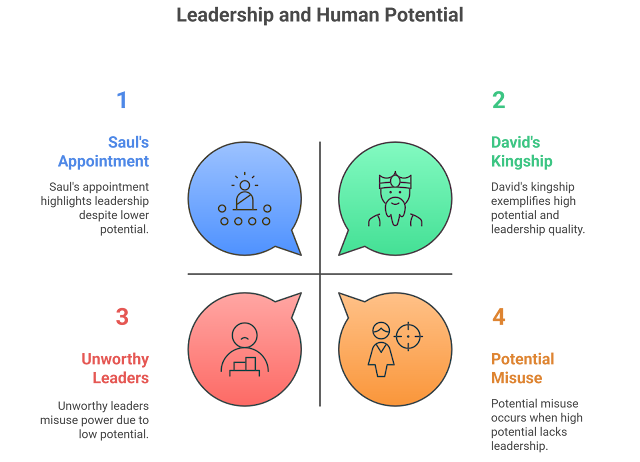Humans, aware of their imperfections, naturally incline toward obedience. The Quran commands: “Obey Allah, obey the Messenger, and those in authority among you” (Quran 4:59). A leader must possess relative excellence, but human fallibility allows for misuse of power, leading to conflicts and turmoil when unworthy individuals assume leadership. Governance is divided into spiritual (prophethood) and temporal (kingship). The Quran highlights Talut’s (Saul’s) appointment as king due to his superiority in knowledge and physical strength (Quran 2:247) and David’s victory over Goliath, earning him kingship and wisdom (Quran 2:251). Historically, physical strength and valor were primary qualifications for leadership, later supplemented by intellectual and moral qualities. A ruler must be the finest human, and unrest arises when an unworthy person ascends the throne.
Saturday, June 14, 2025
14 History of Empires
Unlike other creatures, humans are not limited by innate abilities but can expand their potential through effort, constantly progressing from lowliness to greatness. Those who achieve greater heights, though not absolutely perfect, are relatively superior, yet always aware of their imperfections due to the infinite potential for growth. Human nature inclines toward servitude to the ultimate source of progress, as stated: “I have not created jinn and mankind except to worship Me” (Quran 51:56). This inclination leads to acknowledging a relatively superior human as a leader, forming the basis of kingship and governance. A king is a representative of Allah’s authority, but only Allah possesses absolute perfection, free from all flaws and endowed with all virtues.

.png)
.png)
.png)
.png)